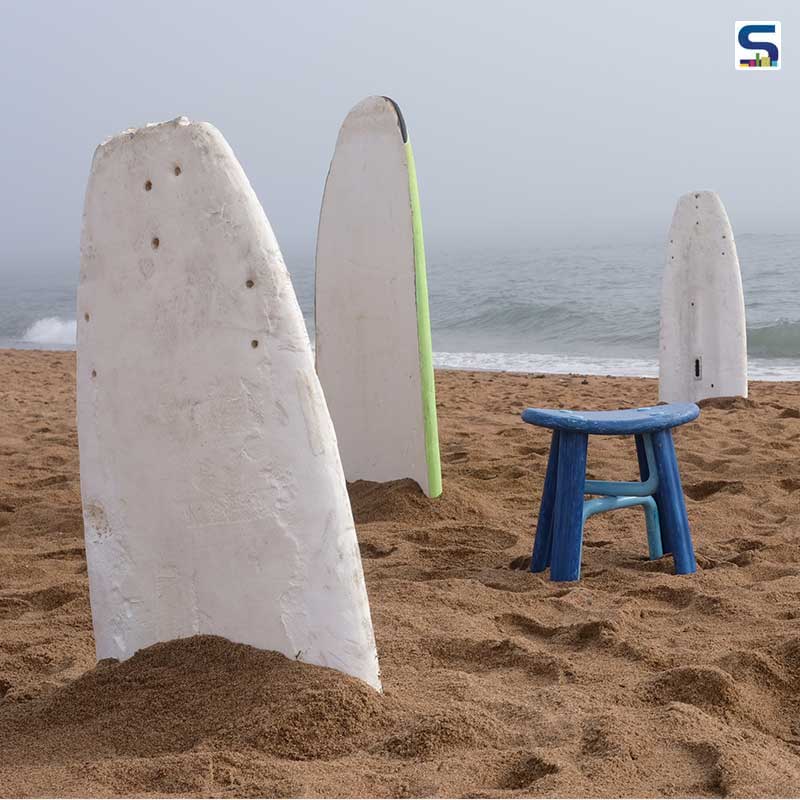
Every year nearly 16,000 cheap polystyrene bodyboards are abandoned on UK beaches often after a single-use. Although surfing is an exciting sport, it comes at an environmental cost. These abandoned boards add to the plastic in the oceans, which eventually endangers the marine ecosystem. To mitigate the wastage of the surfing industry, student designer Harry Peck from Northumbria University created the Wave Cycle project. Aimed at minimizing this problem by upcycling the foam material into durable furniture, Wave Cycle is a sustainable plastic furniture range made from recycled surf and bodyboards.
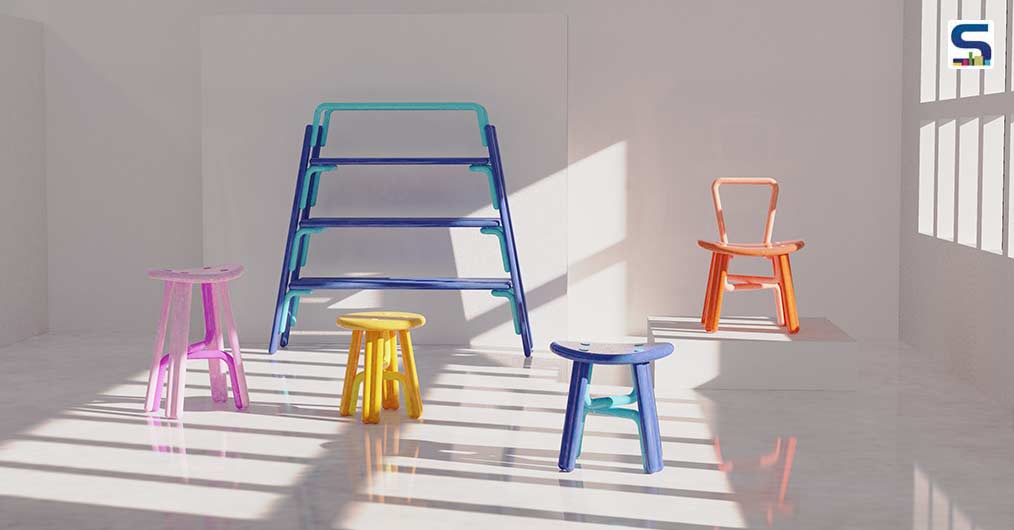 Wave Cycle is a sustainable plastic furniture range made from recycled surf and bodyboards.
Wave Cycle is a sustainable plastic furniture range made from recycled surf and bodyboards.
“The design and manufacturing process is committed to supporting and celebrating environmentalism within the surfing industry. This process also provides a recycling solution to the waste within short life polystyrene packaging foam. By taking a short life material and increasing the longevity in the form of a long-life piece of furniture that is part of a circular manufacturing system, it highlights innovation,” he informs.
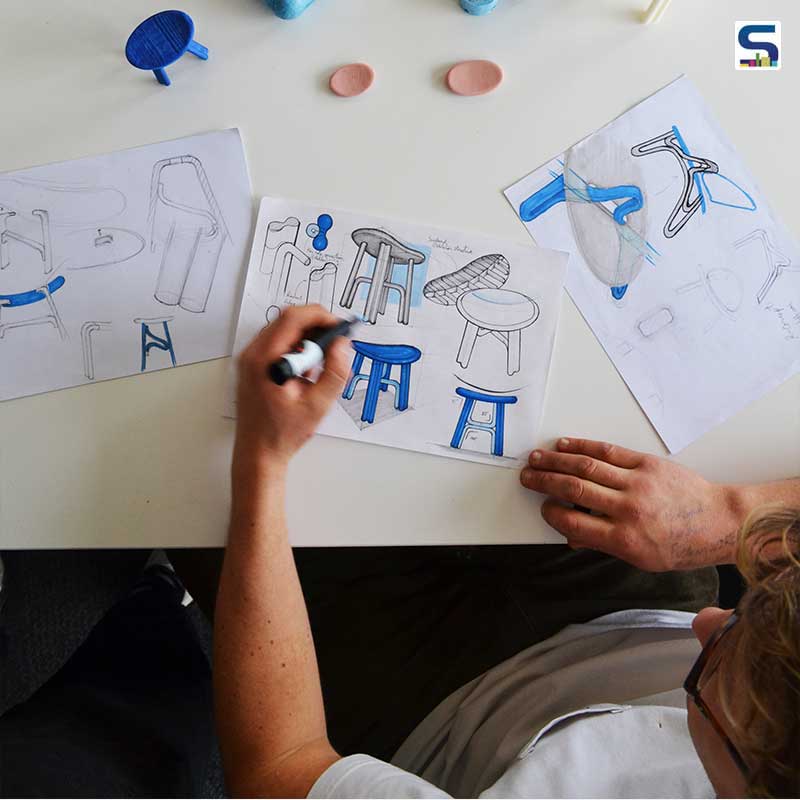 Peck performed over 100 recycling tests on polyurethane and polystyrene.
Peck performed over 100 recycling tests on polyurethane and polystyrene.
Peck performed over 100 recycling tests on polyurethane and polystyrene. The result of which was getting a clear idea of the strength and feasibility of each process. Polystyrene is a thermoplastic, which makes it possess great recycling properties and a desirable glossy finish. He adds, “This exploration process helped me to achieve a design that is in keeping with the properties of the material.”
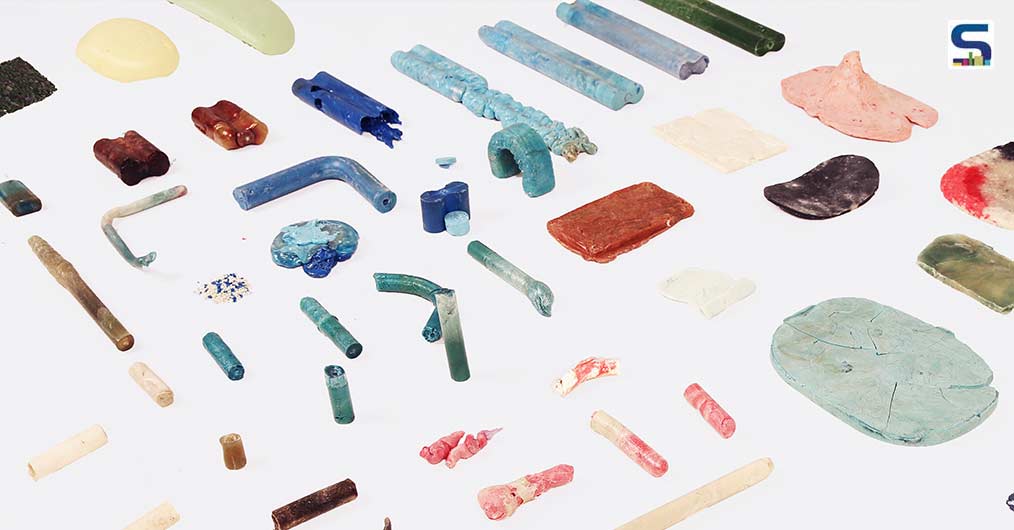 Peck broke down the manufacturing process into three simple stages.
Peck broke down the manufacturing process into three simple stages.
During the production of Wave Cycle, Peck broke down the manufacturing process into three simple stages. The polystyrene foam structure breaks down through heat and reduces in size by 90 per cent. The melted plastic is then placed in the shredder machine that is designed and fabricated by Peck. The shredder produces small granules, thereby making the plastic easier to process for the extrusion machine, which runs on the same electric motor. The shredder and extrusion machines are a scaled-down version from mass production industrial-sized manufacturers would use to injection mould products. In the last stage, the plastic is heated again and injected directly into the mould that is reminiscent of the wavy blue ocean.
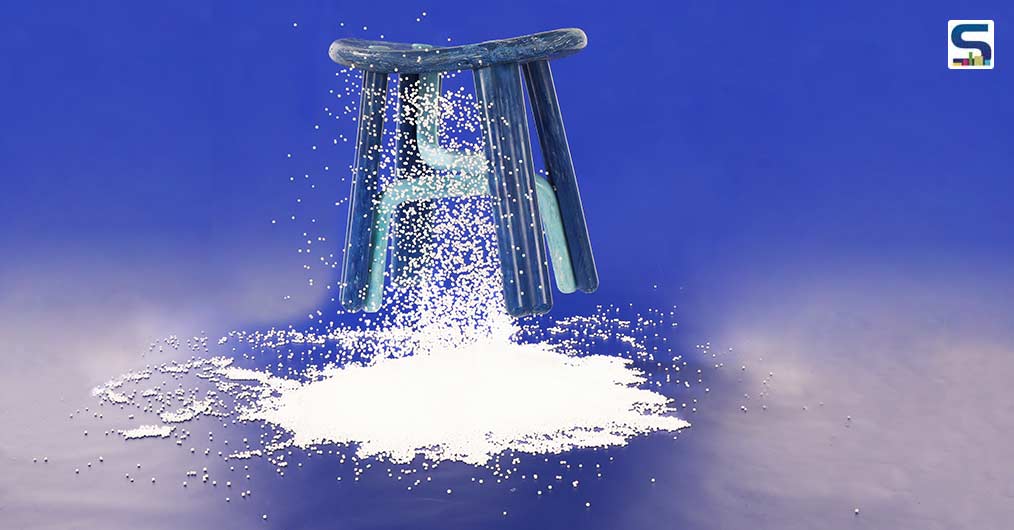 The designs are simpler to manufacture and would require the same moulds, thereby minimizing tooling costs.
The designs are simpler to manufacture and would require the same moulds, thereby minimizing tooling costs.
According to Peck, the final design for the furniture range aims to utilise all of the four designed components. Using four different components, it means that the designs are simpler to manufacture and would require the same moulds, thereby minimizing tooling costs.
Image credits: Harry Peck